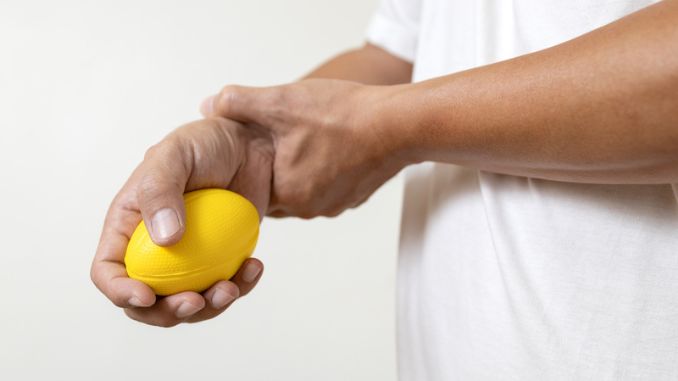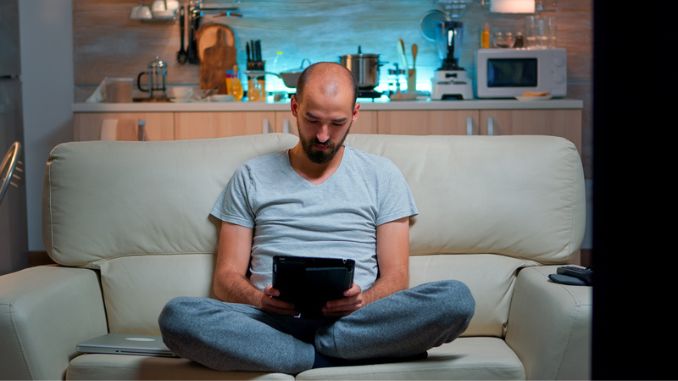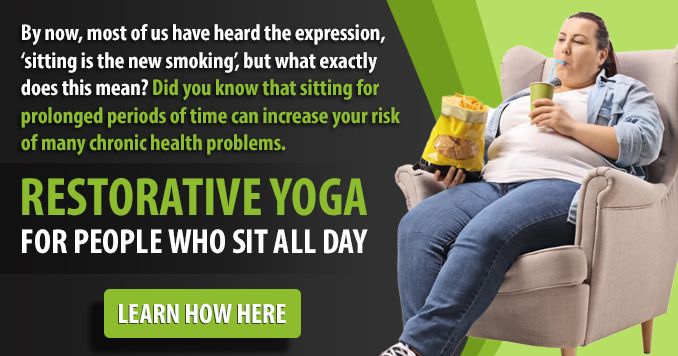Sitting is the new smoking. This phrase has become the new motto of the medical and health world after several doctors, and health experts have realized how harmful sedentary life can be for our bodies. Just like smoking, it increases your risk of getting chronic diseases, including cancer and heart disease. And, just like smoking, it’s hard to quit. “sitting disease” is not a medical term, but the risk is real. The health risks from sitting too long are higher among those who do little or no exercise, but even those who exercise regularly are at risk of heart disease, diabetes, cancer, and death.
That’s right:
Sitting too long can increase your risk of disease and early death, even if you have a healthy lifestyle.
Sitting down requires less energy than when you move or stand.
We’ve become so sedentary that even 30 minutes per day at the gym may not counteract the detrimental effects of many hours of sitting — and, let’s be honest, how many of us do 30 minutes of a gym daily?
Even if you’re one of those rare people, exercising for half an hour a day is not enough if you spend the remaining 23 hours at the computer table, on your couch, and in bed.
Researchers looked over 13 studies on the amount of time spent sitting and activity levels. They discovered that people who sat more than eight hours a day without exercise had an increased risk of death, similar to smoking and obesity. However, in contrast to research studies in the past, this examination of data from over 1 million people showed that between 60 and 75 hours of moderately vigorous physical exercise daily counteracted the detrimental adverse effects of sitting too much. Another study has concluded that for those who are the most active, the amount of time they sit contributes to their mortality risk.
Risk of Sitting Too Long to Your Health
1. Extensive Organ Damage
While anyone can suffer back pain at times because of sitting too long in one place, more harmful changes could also occur in your body.
In time, if you let your body stay inactive for an extended time each day, it will develop various illnesses and ailments.
When you’re not active, your muscles aren’t burning more fat, and blood flow slows, which allows fatty acids to accumulate and block your arteries, and your heart.
Sitting too long can cause many adverse effects, including:
- High cholesterol
- High blood pressure
- Cardiovascular disease
- Breast cancer
- Colon cancer
- Endometrial cancers
- Diabetes
In the meantime, because your body is constantly idle, the pancreas may produce more insulin, leading to diabetes.
2. Weight Gain
After reading what you’ve just learned, it shouldn’t come as a surprise that the degeneration of your body’s performance because of sitting can lead a person to gain pounds.
As we’ve already mentioned, if you’re not active for long enough, the muscles won’t be able to perform effectively as they ought to. This gradual decrease results in your body burning less fat, and all the calories you consume throughout your day aren’t utilized as well, resulting in a more significant portion of these being stored as fat instead of being burned to generate energy.
3. Decline in Brain Function
Sure, the handful of coffee you drink every morning will help keep your brain active throughout the first few hours of the day, even as you sit at your keyboard.
However, as the caffeine begins to lose its effect, the brain can start to slow down, leading to brain fog which could leave you feeling tired and unproductive.
Keeping your muscles moving gets blood flowing, which releases more oxygen to the brain, and keeps you alert. Regularly moving throughout the day can help to stabilize your mood, and you’ll feel better and less anxious as the day passes.
4. Muscle Deterioration
Even if you only spend one hour per day working to build lean muscles and a robust set of abs, sitting too long, up to 7-9 hours afterward, will do nothing to improve your fitness levels.
Sure, spending an hour doing something is better than nothing.
However, if you sit for hours, your abdominal muscles won’t be used as efficiently as they are when standing. They’re able to contract or stretch while you move.
Sitting too long in a single posture weakens your muscles, and if you don’t do more, the hard-earned hour of exercising will prove ineffective or even less effective.
5. Neck and Back pain
A persistent sign of being a desk-bound person is neck and back pain.
Naturally, you’ll feel fatigued after being in the same place for long hours, which can result in poor posture and strain on cervical vertebrae. This can lead to neck and upper back discomfort, sore shoulders, and lumbar pain in the lower back.
The stress placed on your back and shoulders by compressing the discs in your spine all day is easily solved by standing up more frequently and allowing your spine to expand more quickly.
Here is How to Reduce Your Risks from Sitting Too Long
Start by standing instead of sitting whenever you can. Most studies indicate that less sitting and more movement can improve overall health. Below are some simple but effective ways to move more throughout the day.
1. Monitor your sitting time.
Use a time tracker app or a wristband fitness tracker to track the sitting periods. Once you start counting, you are more likely to change your behavior.
2. Find opportunities to move more during your working days.
Instead of emailing a colleague, walk over to their desk. Stand in your coworker’s office to discuss the issue, or suggest taking a walk to talk things through. In the office, take a break every half an hour to stand up, stretch or move around, go to the restroom or make a cup of tea. When watching TV in the evening, do a couple of stretches, squats, and push-ups during commercials.
3. Change your daily routes.
Use every chance to park your car further from the office or shop than usual. This doesn’t necessarily mean three blocks further; even taking a far edge of the parking lot would make a difference over months and years.
4. Take the stairs instead of using an elevator.
Every walk up and down the stairs shapes and tones your legs and lower body muscles. Climbing stairs for two minutes, both ways, five days a week, adds up to an extra 20 minutes of walking done that week.
5. Talk standing.
Don’t sit while chatting on the phone! Stand up and pace around instead.
6. Have walking meetings.
Instead of meeting your friends in a restaurant or for coffee, please invite them for a walk. You can gossip all you want while taking a stroll in the park and going to your favorite café after having an appetite.
7. Take a hike or have a walk outdoors on the weekend.
Being in nature will get both your body and brain refreshed. You’ll be more energetic and creative during the whole week to come!
With these small changes in your daily routines, you can get all the health benefits, if not more, than people who work out in a gym but are inactive in their daily lives.
Physical activity can help keep your muscles in shape, as well as the ability of your body to move and your mental health, particularly when you get older. The effects of moving even leisurely can be significant. For starters, you will burn more calories. This can cause weight loss as well as an increase in energy.
You will feel great and weightless, and your chances of facing some of the most troublesome health issues of our time will decrease.
Please share this with friends and remind them to live healthier, too!

Rick Kaselj MS, is a leading kinesiologist and injury specialist as well as co-creator of the best-selling Unlock Your Hip Flexors program. Rick creates exercise programs that help people heal injuries and eliminate pain, so they can go back to living a full, active, healthy life.










